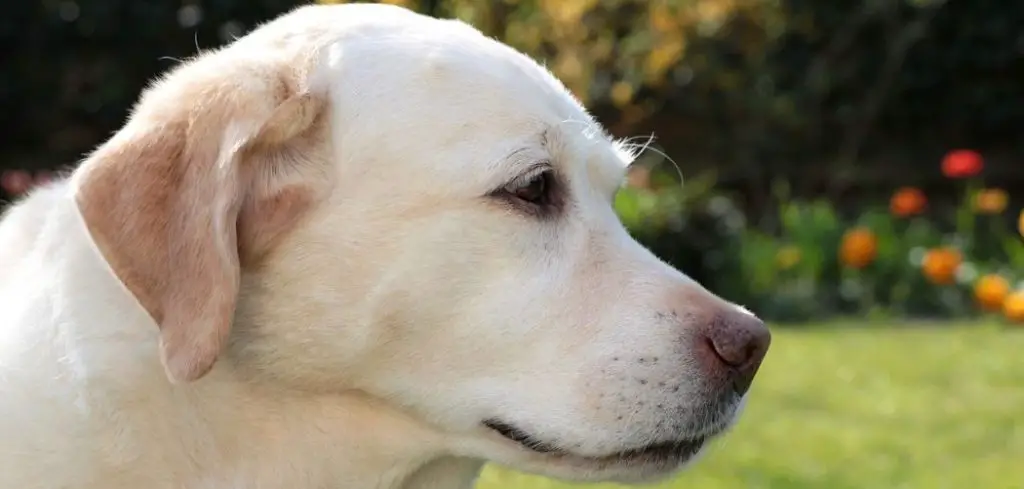When your dog is panting and regurgitating, it’s a sign that something may be irritating their esophagus or digestive tract—and that they’re also under physical or emotional stress. While an occasional episode might not raise concern, frequent or combined symptoms should never be ignored.
We outline the common causes of dog panting and regurgitating, what you can do at home, and when to seek veterinary help.
Dog Panting and Regurgitating — Why It Happens
Panting paired with regurgitation often signals gastrointestinal distress, esophageal issues, or anxiety. Dogs may pant due to nausea, discomfort, or stress related to regurgitation. Unlike vomiting, regurgitation is more passive and often occurs shortly after eating or drinking.

Common Causes of Dog Panting and Regurgitating
Esophageal Disorders (Megaesophagus)
Megaesophagus is a condition where the esophagus becomes enlarged and loses its ability to move food properly.
Food and water may accumulate and then be passively expelled—leading to regurgitation.
Affected dogs often pant due to discomfort, aspiration risk, or malnutrition.
You might see undigested food coming back up, coughing, or weight loss.
Managing this condition often involves upright feeding, dietary changes, and sometimes medication.
Acid Reflux (GERD)
Gastroesophageal reflux causes stomach acid to backflow into the esophagus, leading to irritation, regurgitation, and panting.
Panting may be a response to the burning sensation or nausea.
You might also notice lip licking, burping, or signs of throat discomfort.
Feeding smaller, low-fat meals and avoiding exercise after eating can reduce symptoms.
Medications like antacids or prokinetics may be prescribed by your vet.
Read more: Dog Panting and Vomiting (What’s behind the discomfort?)
Anxiety or Stress
Emotional distress can affect digestion, leading to regurgitation, especially if your dog eats too quickly or while anxious.
Panting is a classic symptom of anxiety, and regurgitation may follow due to swallowing air or stress-induced gastric upset.
Stressful events like car rides, being left alone, or changes in the home environment can be triggers.
Calming routines, slow-feeder bowls, and anxiety-reducing supplements may help.
Overeating or Eating Too Quickly
When dogs eat or drink too fast, especially after exertion or on an empty stomach, regurgitation can follow.
Panting may accompany this from the exertion, excitement, or due to mild nausea.
This is common in puppies or dogs with a high food drive.
Slow-feeding bowls and dividing meals into smaller portions can greatly reduce this behavior.
Monitor your dog’s eating habits and avoid letting them exercise immediately after meals.
Heat Stress or Dehydration
If your dog is panting heavily and regurgitates water or foam, it may be a sign of overheating or mild dehydration.
Dogs may drink too quickly in response to thirst and then regurgitate shortly afterward.
Other symptoms include red gums, restlessness, drooling, and fatigue.
Ensure access to cool, clean water and provide a cool environment—especially in hot weather.
What to Do If Your Dog Is Panting and Regurgitating
Keep your dog calm and offer small amounts of water if they’re not actively regurgitating.
Avoid feeding them for several hours and then start with a bland diet in small amounts.
Watch for signs of aspiration (coughing, difficulty breathing), which can happen if regurgitated material enters the lungs.
Elevate food bowls or feed from a raised position if esophageal issues are suspected.
Record when and how often the symptoms occur to assist your veterinarian with diagnosis.
When to Call or Visit Your Vet
Seek veterinary care if your dog:
Regurgitates frequently or brings up food soon after every meal
Shows signs of weight loss, lethargy, or breathing difficulty
Pants excessively even while resting
Has chronic coughing or nasal discharge (possible aspiration pneumonia)
Struggles to eat, swallow, or keep food down
These may indicate a serious esophageal or systemic condition that requires professional treatment.
Read more: Dog Panting and Not Eating (How to respond)
Key Takeaway
A dog that is panting and regurgitating is experiencing more than just digestive upset—there may be an issue with their esophagus, stress levels, or overall health.
Take note of patterns, adjust feeding techniques, and consult your vet to prevent complications like aspiration or malnutrition.
Quick action and careful observation can go a long way in keeping your dog comfortable and safe.
